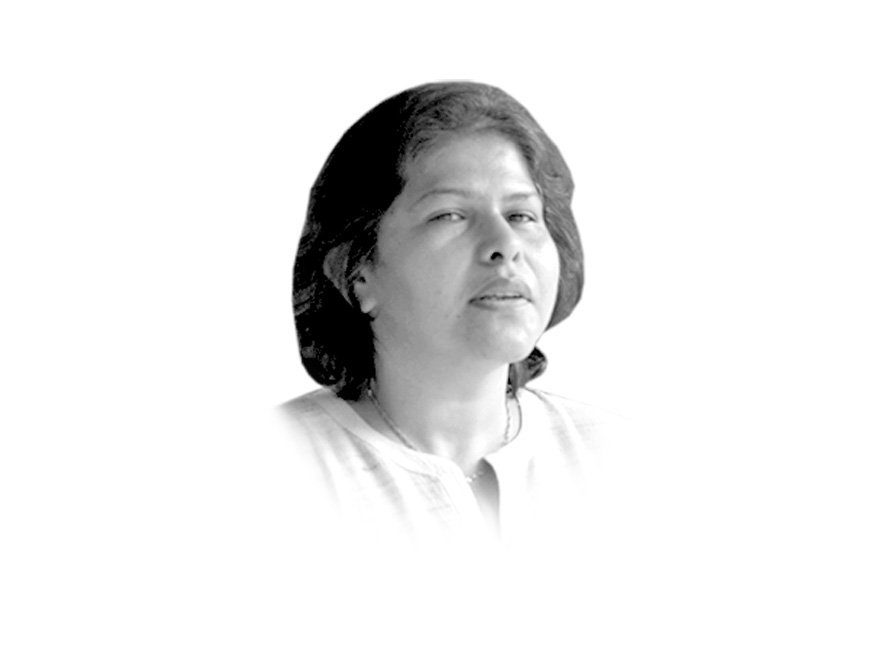
The first question pertains to defining the system of corruption. Indeed, it is a system which not only includes individuals or groups that are directly linked with a kleptocratic distribution of resources, but even those that are indirectly responsible for overseeing such mismanagement. So, corruption must include not just economic but also its political and intellectual aspects. It is a menace which ought to be dealt with holistically. This means that societies must aim for strengthening institutions and building a sense of social responsibility to weed out the menace. The question that we in Pakistan, for example, must ask ourselves is how, despite an emphasis on anti-corruption measures since the mid-1980s, have successive civil and military governments failed to solve the problem. This hasn’t happened because of just a handful of individuals but an entire system that has failed to pinpoint responsibility. For years, every incoming ruler has tried to punish his/her opponent with an anti-corruption slogan but has never done anything substantial. This is dangerous because those who don’t get caught and punished have survived and provide encouragement to others to steal and yet feel safe.
But returning to the American emphasis on the matter, one wonders why the US ignored the issue for so long, especially when it allowed its partners in Latin and South America, southeast and South Asia, and other parts of the world to engage in all forms of corruption? It is possible that the Obama Administration may have pulled out old files to learn how, as stated by the current Under-Secretary of State for Civilian Security, Democracy and Human Rights Sarah Sewall, “…there is nothing — absolutely nothing — more demoralising, more destructive, more disempowering to any citizen than the belief that the system is rigged against them and that people in positions of power are, to use a diplomatic term of art, crooks who are stealing the future of their own people; and by the way, depositing their ill-gotten gains in ostensibly legitimate financial institutions around the world.” The fact is that a lot of rebel movements had emerged as a result of the corruption of numerous American commercial giants in Latin America. These included some of the movements, which the US military fought in its neighbourhood with firepower. Then the lesson for Washington should be that many of the current radical movements are nothing more than the ordinary people’s reaction to corruption of their leaderships that they consider are conduits of the West. Where does one draw the line?
Despite this current emphasis on corruption, Washington needs to think through its approach for the reason that there is really no direct linkage between corruption and the current wave of terrorism unless we are willing to expand the definition. If corruption or financial mismanagement was the main source of terrorism or radicalism, then the US and many countries of the West, such as Iceland which suffered due to the corruption of its leadership and its corporate sector, ought to be radicalised by now. Surely, the treatment of African-Americans in the US at the hands of law enforcement and the inability of the judicial system to respond to such violence indicates the presence of some form of corruption or highlights that the problem exists in America as well. But the question worth asking is that despite this injustice, why is it that in some parts of the world corruption does not create the same kind of results as in others? Also, does the State Department even have a definition of radicalism?
It will be worthwhile for the US to pull out some of the older files in its possession to see how radicalism and the resultant terrorism got planted in different lands due to American national security needs. The entire concept of finding partners in areas of conflict or of major American interests depends on engendering local partners. This is a higher form of corruption. Looking at South Asia and Pakistan in particular, leader after leader sold out national interests, in fact, their entire societies, for ‘peanuts’. The war in Afghanistan to drive out the Soviet troops resulted in shifting the narrative and accelerating radicalism in larger society across Afghanistan and Pakistan. Or as the former Secretary of Defense Robert Gates points out in his book, cooperation between Islamabad and Washington to build up the Mujahideen dates back to the mid-1970s. Decades later, Pakistan is transformed and the region has a radicalism and terrorism problem on its hands.
Surely, it is wonderful if the US is now shifting its emphasis and believes that corruption is an issue. But if one were to learn from past mistakes, this shift in narrative may not necessarily solve the radicalism problem in individual states. Militaries all over the world will continue to use non-state actors unabashedly as policy tools without much remorse. Also, politically powerful armed forces will probably use the anti-corruption agenda to kick out political rivals and sack undesired elements. One only hopes that we in Pakistan fight corruption, not in pursuance of any dictates by the State Department, but because that is what we need to do.
Published in The Express Tribune, June 9th, 2016.
Like Opinion & Editorial on Facebook, follow @ETOpEd on Twitter to receive all updates on all our daily pieces.




1730884134-0/BeFunky-collage-(26)1730884134-0-165x106.webp)






COMMENTS (8)
Comments are moderated and generally will be posted if they are on-topic and not abusive.
For more information, please see our Comments FAQ